
Emergency Dentistry – Naperville, IL
Quickly Providing Dental Care When You Need It Most
Is serious dental pain keeping you from going about your day? Fortunately, our team at Grand Dental – Naperville can help. When you call our dental office, we’ll do our utmost to book an appointment for you as soon as we can, typically later that same day. You can even reach our dentist on call for after-hours emergency dentistry in our Naperville, IL dental office.
Why Choose Grand Dental - Naperville for Emergency Dentistry?
- Dentist Available on Call for After-Hours Emergencies
- We’re Open on Saturdays
- Dental Sedation Offered
What To Do During a Dental Emergency

Due to their unexpected nature, it’s difficult to say what to do after a dental emergency to avoid the risk of additional damage. Every situation is different, so you should contact us immediately. Our team can provide basic guidance and care tips over the phone and help put your mind at ease if you’re feeling stressed. That said, here are the three primary steps you can take:
- Same-Day Appointment – Even if you aren’t sure about the seriousness of your emergency, you should still call us; you might need to come in for a same-day visit. We will get this scheduled quickly, even if it’s after-hours.
- Emergency Examination – Once you’re here, the first thing we will do is perform an emergency examination and capture the necessary X-rays to quickly identify the source of the problem. We’ll also quickly get you out of any immediate, severe pain you might be feeling.
- Receiving Urgent Care – We will help you decide on the best course of action before carrying out a treatment plan that’s designed to eliminate any discomfort and get your smile back on track, whether this involves a filling, crown, or something else entirely.
The Most Common Dental Emergencies
Regardless of the nature of your dental emergency, big or small, you shouldn’t hesitate to contact us for help. Once you’ve described your symptoms over the phone, we’ll begin providing you with assistance from that point forward until the issue has been fully resolved. That said, here are a few examples of some common dental emergencies, along with some tips you can use to keep your discomfort to a minimum while you’re waiting to come see us.
Understanding the Cost of Emergency Dentistry

Everyone’s smile and situation are different, meaning the only way we can tell you how much your treatment will cost is by examining your mouth and diagnosing the underlying issue. From there, we can develop a treatment plan to relieve your pain and get your smile back on track! Our team members are also happy to sit down with you and review your insurance benefits and financial options; no one should ever have to put off necessary dental care due to financial concerns!
Every Dental Emergency is Different
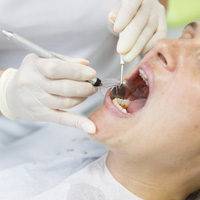
Our team at Grand Dental – Naperville is prepared to deliver a concise cost estimate for treatment, but only after we have conducted a thorough examination. Even if two people arrive with broken teeth, the severity of the problem and the proposed plan can be vastly different. As a result, it is necessary that we evaluate your case individually and determine how to address the problem as well as how much it will cost.
Does Dental Insurance Cover Dental Emergencies?
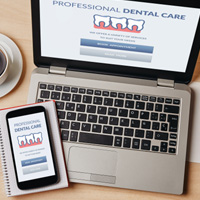
You are strongly encouraged to review your dental insurance plan to learn what kind of coverage is provided for dental emergencies. Many PPOs (not all) offer one free emergency exam each year, but this is not typically where the significant cost occurs. Instead, it is with the restorative treatment your dentist recommends. Fortunately, most dental insurance plans provide coverage for dental fillings, dental crowns, root canal treatment, tooth extractions, dentures, and other similar services. Insurers will likely pay anywhere from 50-80% of the overall price.
Other Options for Making Dental Emergencies Affordable
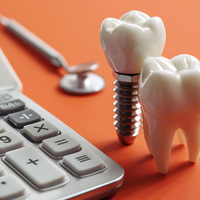
Since the cost of emergency dentistry in Naperville will require you to pay a portion out of pocket, you may need assistance to help cover these expenses. We are pleased to provide two options: an in-house membership plan and flexible financing.
With the Grand Advantage Plan, you pay one low fee membership fee while receiving a 20% discount on all services available in our Naperville office.
If you prefer to finance your balance, you can choose from one of the many payment plans offered through CareCredit or Alphaeon Credit. These companies make it easy to pay off the out-of-pocket costs over time instead of upfront.
Taking Care of Your Smile Can Save You Money

You can’t always avoid a dental emergency, especially one like a sudden fall, but you can take steps to reduce your risk of those caused by poor oral hygiene. Preventive care is one of the most effective ways to save money and better protect your smile against decay and damage. Cavities, gum disease, and infections can be mitigated with good at-home oral hygiene and regular checkups and cleanings at our dental office in Naperville.
What you’ll discover is that you’ll spend more time and money on doing what you enjoy and less on visits to your emergency dentist’s office.
Keys to Preventing Dental Emergencies

Unfortunately, dental emergencies aren’t 100% avoidable—but that doesn’t mean you’re totally helpless! There are several precautions you can take to reduce your risk of experiencing one, especially those that occur as a result of poor oral hygiene. By taking the appropriate steps early on, you can minimize the possibility of suffering from a chipped, cracked, or infected tooth and continue to enjoy a healthier, damage-free smile.
Keep Your Regular Dental Appointments
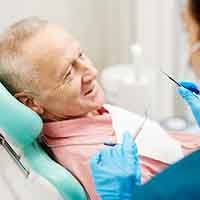
Continuing to see your emergency dentist in Naperville every six months for checkups and cleanings can ensure problem areas are detected early. If signs of decay or gum disease are evident, our team at Grand Dental – Naperville can implement effective treatment solutions to address the underlying issue and restore your smile so that further infection and damage do not occur.
Keep Brushing and Flossing

Good at-home oral hygiene habits are just as important as regular checkups and cleanings. Since it’s necessary to brush and floss each day, you’ll want to know how to do it correctly so that no bacteria or harmful particles remain. You can also incorporate a dentist-recommended mouthwash to help flush out anything that might be left on your teeth that you may have missed while brushing and flossing.
Be Mindful of What You Eat

Foods that are low in sugar and starch can be enjoyed now and then; however, they should not make up the majority of your diet if you want to avoid a nagging toothache or infection. Instead, adopting a healthy diet that is full of nutrient-rich vitamins and minerals (i.e., leafy greens, fruits and vegetables, lean protein, low-fat dairy, etc.) will do more to protect your gum tissues and teeth in the long run.
Wear a Mouthguard to Protect Your Teeth
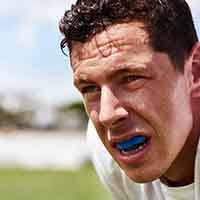
A protective mouthguard can be useful when playing sports or protecting teeth from possible grinding and clenching. When worn properly, your upper row of teeth will remain safeguarded against excessive pressure during a game that might otherwise cause a chipped, cracked, or knocked-out tooth. It can also serve as a cushion between your upper and lower rows of teeth throughout the night, reducing enamel erosion and potential jaw pain.
Use Tools to Open Packages, Not Your Teeth

Your teeth are strong, but they are not incapable of sustaining damage. Trying to open a package or container with your teeth will only increase your risk of a dental emergency. Instead, look for the right kind of tool to see what’s inside your special delivery. Scissors, pliers, or even a can opener can effectively do the trick, not your teeth.
Dental Emergency FAQs

Our emergency dentist in Naperville is here to answer all the necessary questions patients have about dental injuries. When a sudden incident occurs, it can lead to much panic; however, having the right information beforehand can make it easier for a patient to minimize the potential impact and possible damage while waiting to see a dentist. Below is a list of questions and answers for individuals to review. Should any additional concerns or inquiries arise, all patients are welcome to contact our office for further help.
How should I sleep with tooth pain?
Deciding whether to treat a nagging toothache can mean the difference between restful sleep and chronic fatigue the next day. When patients who are experiencing a problem tooth go to bed, it’s recommended that they elevate their head to keep blood from rushing to the area and causing additional pressure. Over-the-counter pain relievers are also helpful in reducing throbbing pain. Patients with toothaches should remember to avoid anything hot, cold, or acidic before bedtime.
Can I fix dentures that are broken in half?
Dentures that are broken in half can only be fixed by a skilled prosthodontist. When this type of damage occurs to a prosthetic, someone with the training and experience should be the only person addressing the problem. It’s highly unlikely that the denture can be saved but instead, need to be replaced. If this happens while at home, patients are strongly encouraged to call our office and alert us to the situation. If you have a spare denture at home, you are free to wear it until you can get in to see us about a replacement.
What does chronic bad breath mean?
Chronic bad breath is also referred to as halitosis, and it is far worse than simply eating garlic or onions or even waking up with bad breath in the morning. This type of problem is the result of poor oral hygiene, smoking or tobacco products, or other serious problem. When cavities, gum disease, or a dental infection occurs, it can lead to chronic bad breath if left untreated. The only way to treat this type of issue is to schedule an appointment with our team to discuss ways to address the problem and make a person’s breath healthy and fresh again.
Should knocked-out teeth be placed in water?
No, patients must never place their knocked-out teeth in a container of water. The reason is that the root surface cells of teeth can become damaged, making the structure no longer viable for reintegration with the bone tissues. If a person experiences this type of dental emergency in Naperville, they should be sure to place the tooth in a container of milk if they cannot reinsert it and hold it in place inside the vacated socket.
I Need a Checkup & Cleaning I Need a Dentist for My Child I Have a Cavity or Broken Tooth I am Missing One or More Teeth I Want to Enhance My Smile I Want a Straighter Smile I am Concerned About Gum Disease I Have Dental Anxiety I Want to Learn About Sleep Apnea View Our Services